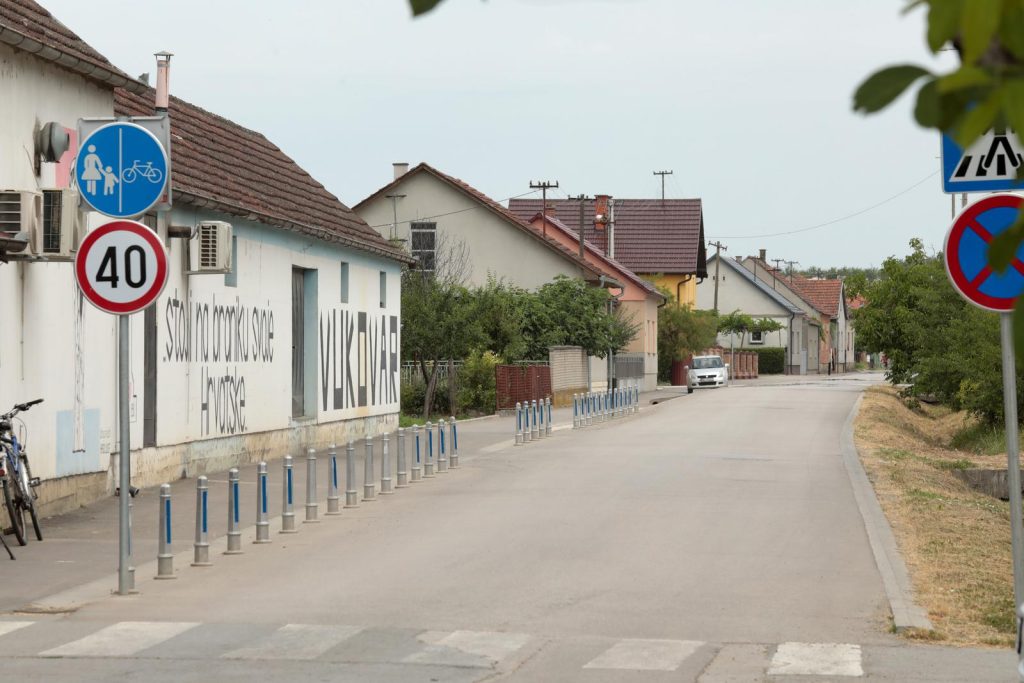January the 24th, 2024 – As Croatia becomes home to more and more foreign workers from non-EU nations and distant countries, the demographic is altering. Some Filipino workers have decided to live in a Slavonian village instead of a larger city – and they’re feeling quite at home.
As Poslovni Dnevnik writes, the need for foreign workers in Croatia is only increasing, so it’s expected that this year the number of work permits issued for third country nationals will exceed 200 thousand. The lack of qualified staff is having a particular effect on some branches of the economy, as well as on craftsmen. A group of Filipinos have been living and working in Donja Bebrina near Slavonski Brod for several months now. They settled in quickly, and some have already received some warm Slavonian nicknames, as reported by HRT.
Filipino nationals Deonel, Edvin and Mark found work and a temporary home far from their homeland. In Donja Bebrina near Slavonski Brod. They like the quiet life in the Slavonian countryside, but the realities of a central European winter surprised them – to say the least.
“It’s very cold. The climate is significantly different than it is back home. It’s mostly hot all the time back in the Philippines,” said Mark Anthony Capiz. Other than low temperatures, the group say they have no other problems to speak of in their new Slavonian home. The local people have readily accepted them, and Deonel Marvelinio already got a very Slavonian nickname. “Baja. My name is Baja. Both at home and at work. My colleagues call me that,” he laughed.
“Donja Bebrina is good for business. It’s a really small place, but its still very good”, said Edwin Gayaga.
Five male Filipino workers and Filipina employee Julie were all hired by a local meat processing company. “The situation is such that there’s no butcher this year. We were also looking for workers, but very few people came forward. Unfortunately, our local people just keep on leaving,” stated Verica Mirković from the Donja Bebrina meat processing company.
Foreign workers are increasingly in demand in other branches as well, with construction still dominating in this regard.
“The first noticeable import of labour from third countries began back in 2019 and has been increasing for the last four years,” explained Anto Pivac, president of the Management Board of ĐĐ Montaža, based in Slavonski Brod.
Of the average thousand employees in their halls, five to ten percent are foreign citizens at the moment. “I’m in Croatia for work. I work as a welder,” said Jeremias Yordan, one of the Filipino workers.
A group of Nepalese nationals also found a job in the “Đuro Đaković” industrial zone. “We work here making car parts for a company,” said Ajuz.
Their Croatian employers also help them with finding and securing accommodation, and they’re all currently living in one house in Donja Bebrina. “We made more rooms there. They have their own kitchen and bathroom there, the yard is theirs, they also have some chickens,” said Verica Mirković.
Deonel plans to bring his wife and son over to live with him in Croatia in the spring, and he’s busying himself learning Croatian in the meantime.
Filipino workers are only one small slice of the ‘cake’ in this situation, as the Croatian labour market is clearly changing dramatically. As a result experts warn that a quality and more manageable immigration policy should be devised as soon as possible.











